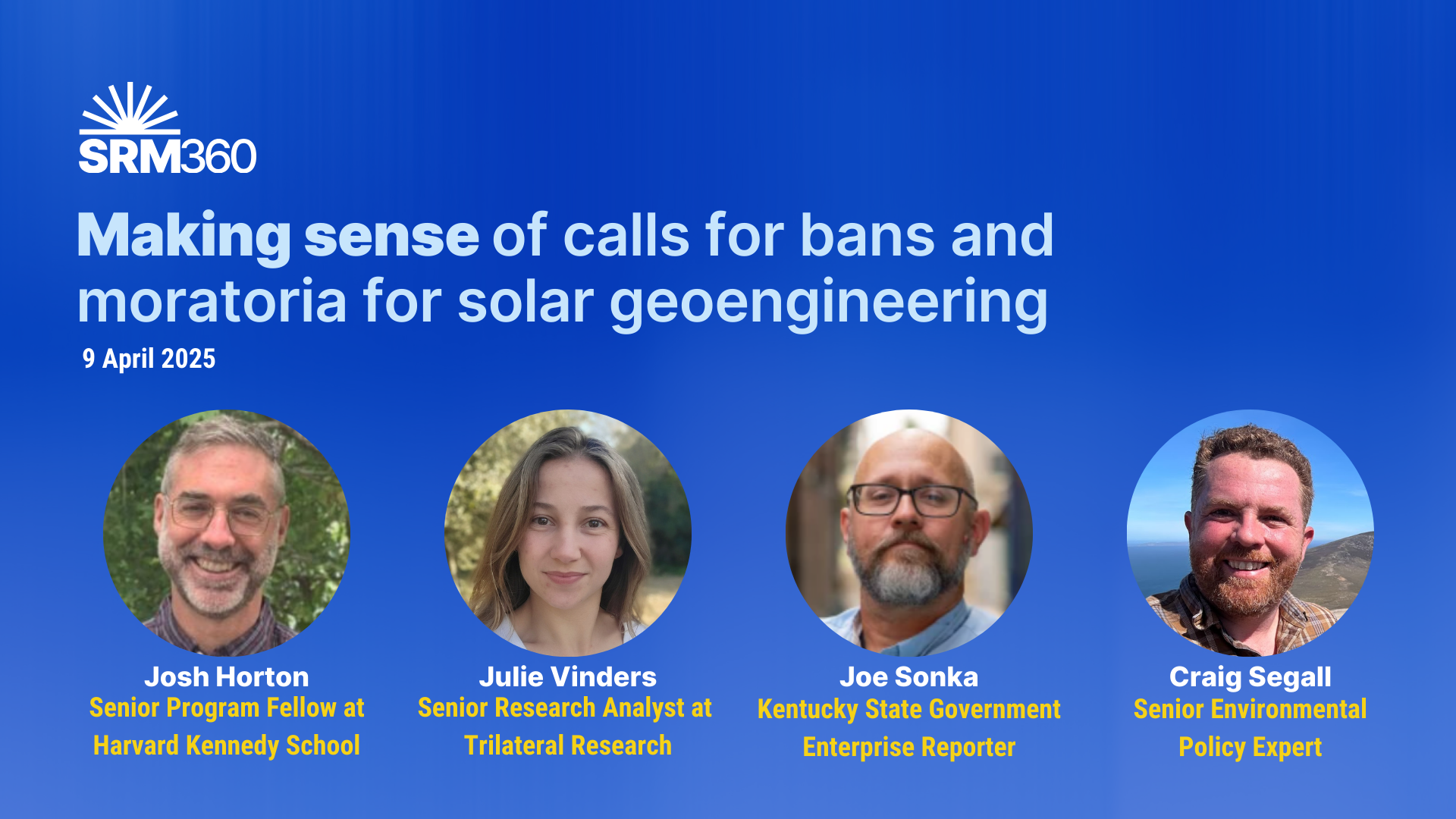Perspective
Misguided Proposals to Ban Geoengineering in US States Lose Steam
A growing number of US states have considered bills to ban geoengineering, including sunlight reflection methods (SRM), but most have failed or stalled. Craig Segall discusses the context and latest developments, and looks ahead to the challenges and opportunities for future SRM governance.
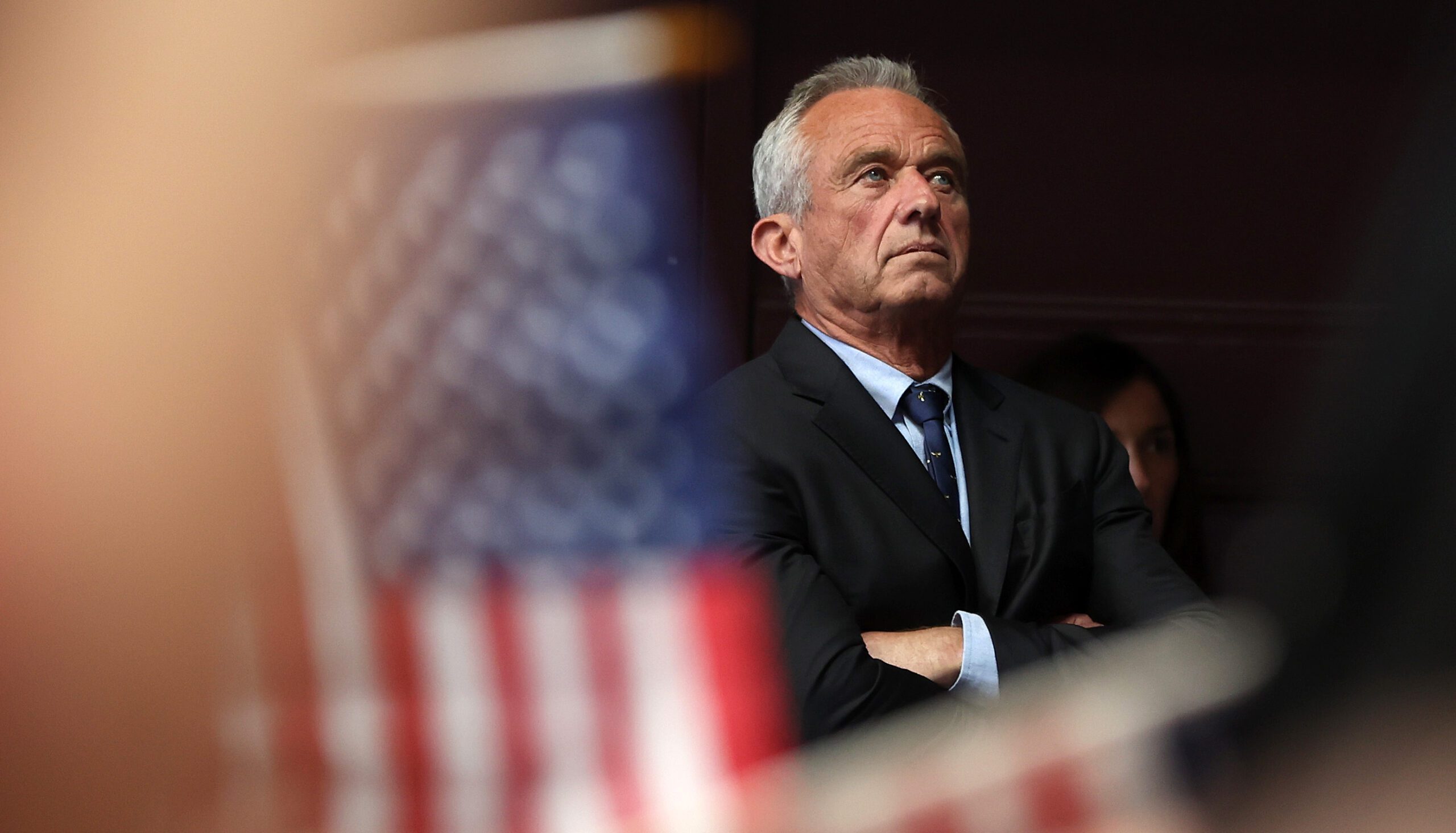
Health and Human Services Secretary Robert F. Kennedy Jr. (photo: Justin Sullivan / Staff).
This has been a rough few months for academic freedom in the United States, including ongoing federal attacks on major research institutions, but the tide may be starting to turn – at least on climate science. Though very large threats remain, there’s an emerging bipartisan consensus that criminalizing or banning research goes too far. A rash of state bills that would have attempted to turn climate researchers focusing on global cooling techniques, like solar radiation management (SRM), into outlaws look likely to fail in almost every state in which they were proposed. That’s good news.
State research ban bills mostly strike out
Earlier this year, the situation looked grim for climate science and for research on SRM in particular. Not only is the U.S. federal government careening away from ever-more-needed serious climate mitigation efforts while dismantling core climate research institutions, but U.S. states have also considered banning research on technologies that perhaps could help constrain the effects of the dangerous additional warming those new federal policies risk. It looked like the U.S. might make the climate problem worse, blind itself to the problem, and then block research on a class of potential interventions – all in one bad year.
Sure, no actual outdoor SRM research is happening in the U.S., and chemtrails (the conspiracy theorist idea that planes are secretly spraying toxic chemicals for nefarious purposes) don’t exist. But in many states, legislators still proposed legislation in response. At least 34 states have considered bills since 2023 (with 31 of those bills this year alone) banning outdoor research on ways to cool the planet – often in ways so sweeping that they could have criminalized scientists who might, one day, experiment on SRM at even tiny scales in controlled ways. At the federal level, the U.S. Environmental Protection Agency Administrator Lee Zeldin took a brief break from lifting limits on toxic pollution to look into tiny amounts of sulfate released by one company’s repurposed weather balloons as Health and Human Services Secretary Robert F. Kennedy Jr. blustered on “chemtrail” conspiracies floating around his anti-vaccine cohort. Was the U.S. going to criminalize climate research even as it retreated from climate action?
Not so fast, as it turns out. In state after state, the ban bills have failed. Legislators in far right-wing Idaho quietly shelved a ban bill as constituents focused on affordability and cost of living issues instead. The same thing happened in Alabama. Arizona opted out too, moving ban bills to a “committee graveyard”. Minnesota lawmakers laughed off a bill that banned not just basic SRM research but “xenobiotic electromagnetism” – whatever that is. In other states, like Iowa, less overwrought bills moved out of committee but then never made it to a full vote.
Though some state legislative sessions are continuing, most are almost over for the year. So far, ban bill proponents have mostly struck out, with only two more states – beyond Tennessee, which enacted a ban last year – enacting bans, out of 34 tries in the last two years. Louisiana passed a ban to much baffled commentary from experts pointing out that the state had banned a nonexistent problem. As one state Representative said, “I just feel like we owe the people of Louisiana much more than to be talking about things that I don’t see and that aren’t real.” Meanwhile, Florida’s Governor Ron DeSantis has signed a ban bill too – this one obliging the state’s regulators and airport officials to respond to citizen reports of chemtrails. One feels for the hapless government workers who will now be tasked with inspecting any planes at remote airports a passerby finds suspicious.
Proposals to ban solar geoengineering in the US
Thirty-four US states have proposed banning solar geoengineering since 2023.
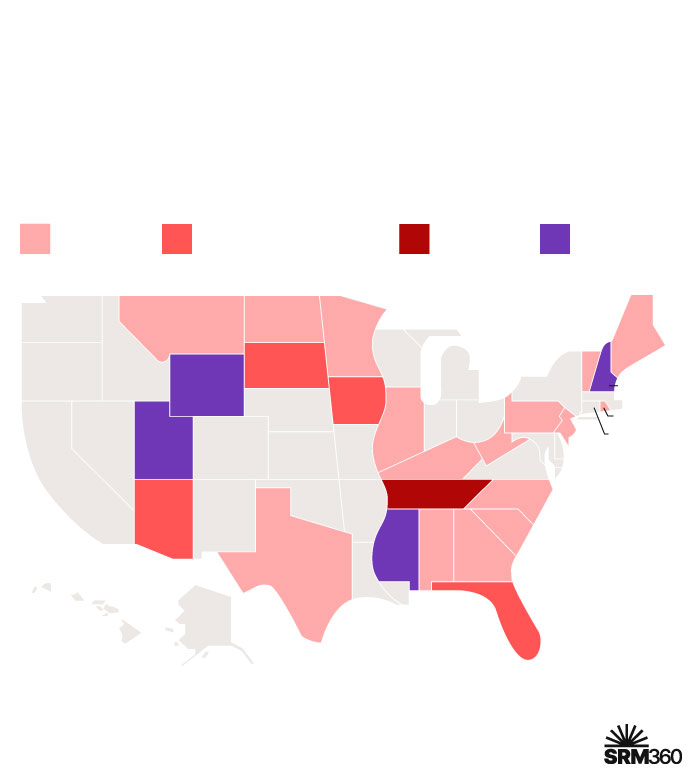
Proposed
Passed by state house or senate
Failed
Approved
Wash.
Mont.
N. D.
Maine
Mich.
Minn.
Wis.
Vt.
S. D.
Ore.
Idaho
N.H.
Wyo.
N.Y.
Mass.
Iowa
Neb.
R.I.
Pa.
Ohio
Ind.
Conn.
N.J.
Ill.
Md.
W. V.
Nev.
Utah
Colo.
Del.
Kan.
Mo.
Ky.
Va.
Tenn.
N. C.
Calif.
Okla.
Ark.
Ariz.
N.M.
S. C.
Ala.
Miss.
Ga.
Texas
La.
Fla.
Hawaii
Alaska
Note As of 24 June 2025
Source: SRM360.org
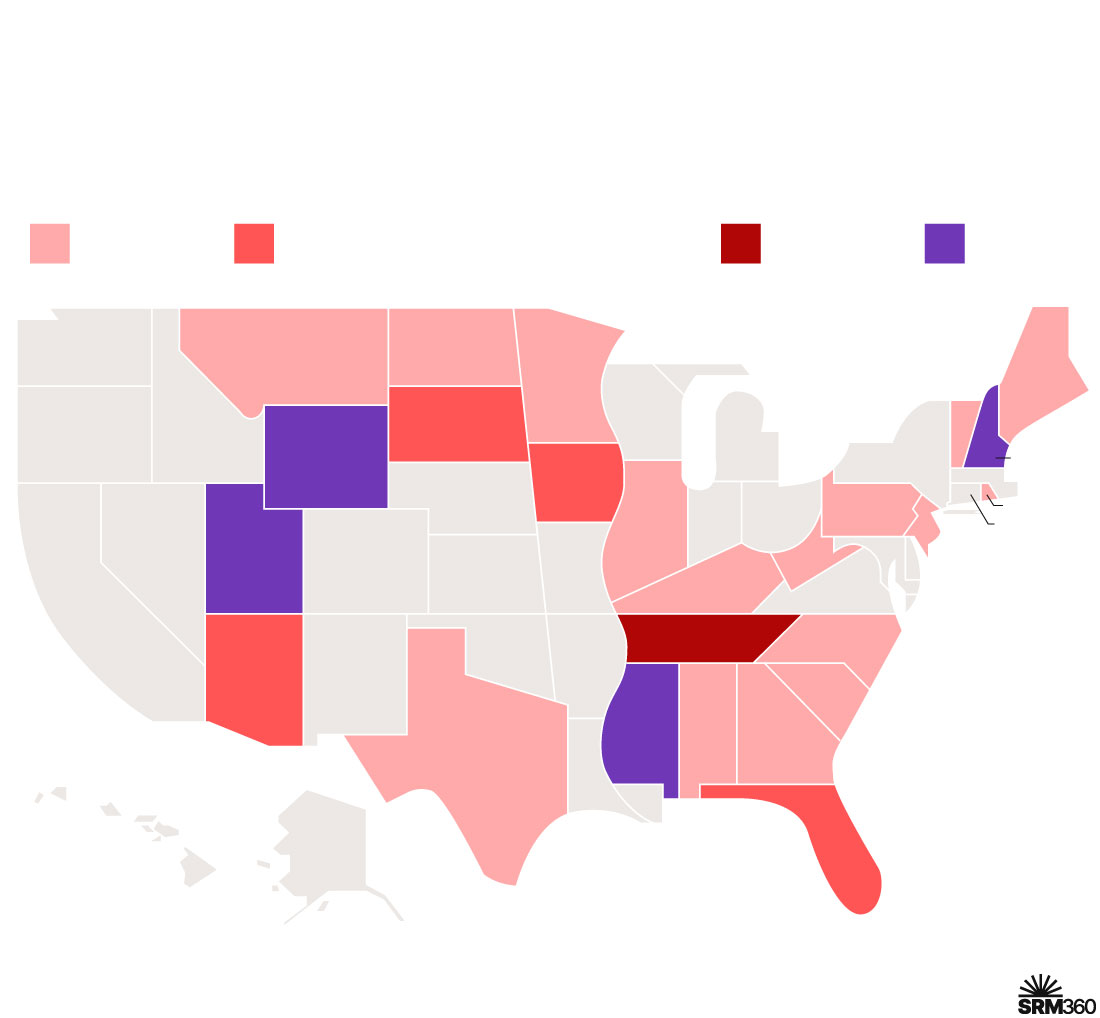
Proposed
Passed by state house or senate
Approved
Failed
Wash.
Mont.
N. D.
Maine
Minn.
Wis.
Vt.
S. D.
Ore.
Idaho
Mich.
Wyo.
N.H.
N.Y.
Iowa
Mass.
Neb.
R.I.
Pa.
Ohio
Ind.
Conn.
N.J.
Ill.
Md.
W. V.
Nev.
Utah
Colo.
Del.
Kan.
Mo.
Ky.
Va.
Tenn.
N. C.
Calif.
Okla.
Ark.
Ariz.
N.M.
S. C.
Ala.
Miss.
Ga.
Texas
La.
Fla.
Hawaii
Alaska
Note As of 24 June 2025
Source: SRM360.org
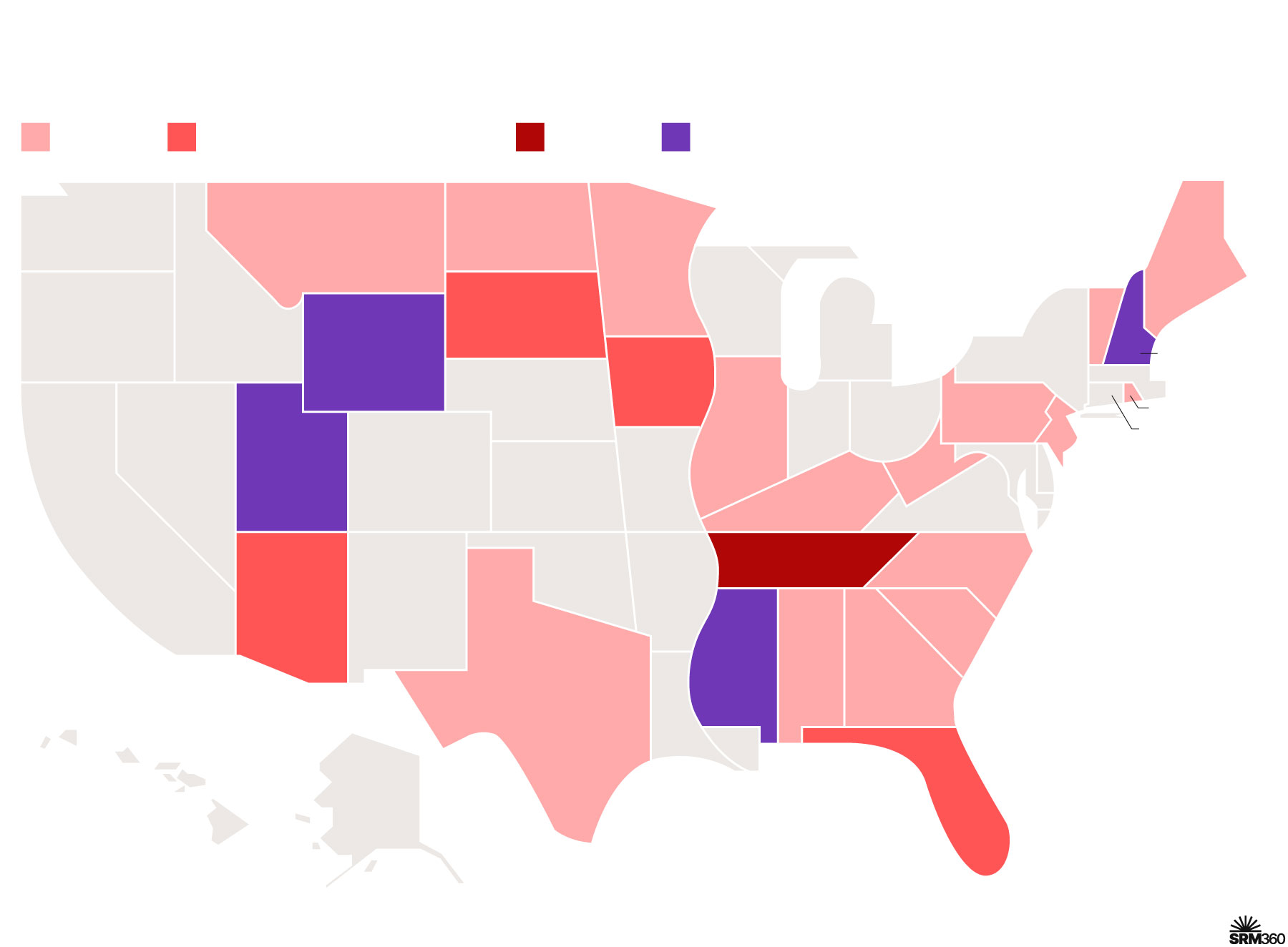
Proposed
Passed by state house or senate
Approved
Failed
Washington
Montana
N. Dakota
Maine
Vermont
Minnesota
Wisconsin
S. Dakota
Oregon
Idaho
Michigan
Wyoming
New Hampshire
New York
Iowa
Massachusetts
Nebraska
Rhode Island
Pennsylvania
Ohio
Indiana
Connecticut
Illinois
New Jersey
Maryland
W. Virginia
Nevada
Utah
Colorado
Delaware
Kansas
Missouri
Kentucky
Virginia
Tennessee
N. Carolina
California
Oklahoma
Arkansas
Arizona
New Mexico
S. Carolina
Alabama
Mississippi
Georgia
Texas
Louisiana
Florida
Hawaii
Alaska
Note As of 24 June 2025
Source: SRM360.org
To be clear – we aren’t out of the woods. Very bad ideas have a way of persisting and causing real harm – witness how the same community of extremists on both the left and right now pushing chemtrail bans have also tried to call vaccines into question and contributed to the worst measles epidemic in years.
The Trump administration continues to be deeply hostile to climate science. People and legislators of good will need to keep insisting on fact-based policy and defending the great research institutions that help drive forward progress. But, at least for now, we know that there is limited appetite, in both Republican and Democratic states, for wasting public resources on non-existent problems. That’s encouraging – and it leaves room to start work on actual policy challenges.
Focusing on real problems
Here’s the truth: There are no chemtrails in the sky, and there never were. But there is a real need to understand the science of global cooling given the actual pollution in the atmosphere – greenhouse gases. That’s why world governments, including the United Kingdom, are not only redoubling efforts towards the clean energy transition, but also funding and overseeing real SRM research on everything from computer modeling to ethics, including some very small scale outdoor experiments that are carefully overseen. We have a real challenge ahead: global emissions are likely to begin to fall in the next few years as clean technology booms, but we are dangerously close to planetary boundaries for a safer climate, and we may not have the time we need to complete the clean energy transition. The world needs to know its options, and those options need to be grounded in the best science available.
It’s heartening that global forums and science bodies are increasingly asking and debating hard scientific and governance questions around those options. Just as recent federal attempts to ban talking about climate science don’t make the climate crisis go away, banning the study of technologies like solar radiation management doesn’t make the hard questions any easier. Serious people, with all sorts of perspectives, need less speculation and more data to inform decisions ahead.
There is now real room for better answers in the states too. Sure, most of the ban bill furor has been driven by conspiracy theorists. But ordinary people have legitimate questions about climate interventions that may be needed to protect people and the planet, and they deserve high-quality, responsible research to answer them. The good news is that scientists and governments are increasingly converging on core principles to guide and govern research in responsible ways. If states, or the federal government, feel they need statutory frameworks to guide experimentation in future, there are ample good ideas available for them – including tools to ensure public oversight and safety, requirements to make sure results are transparent, and options to ensure potential technologies are publicly governed. Precisely none of these ideas showed up in the ban bills – but responsible legislators could certainly move in this direction, responding to public pressure by elevating the policy dialogue rather than debasing it.
We all really need policymakers to solve real problems and not to waste time on fake ones – and the good news, as we have just learned, is that the vast majority of elected officials appear to agree, as they reject the unwise ban bill approach. All of us can now help the fever break by focusing attention on the tough questions that are actually at hand. After all, U.S. states and other subnational governments can do a lot, both on ongoing decarbonization that we so urgently need, and on this emerging set of challenges. They have the budgets, research institutions, and innovators needed to durably inform the global conversation, if they choose to align their efforts. Perhaps, with sustained focus, the next wave of subnational action could shift from attempting to stop imaginary chemtrails to developing the research and governance needed to address the real crises in our atmosphere.
The views expressed by Perspective writers and News Reaction contributors are their own and are not necessarily endorsed by SRM360. We aim to present ideas from diverse viewpoints in these pieces to further support informed discussion of SRM (solar geoengineering).


